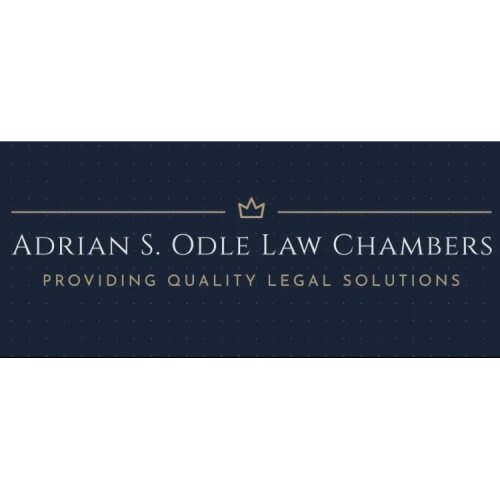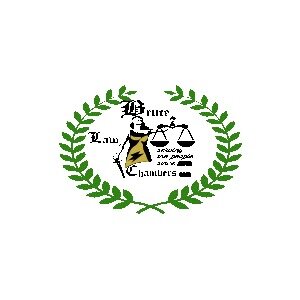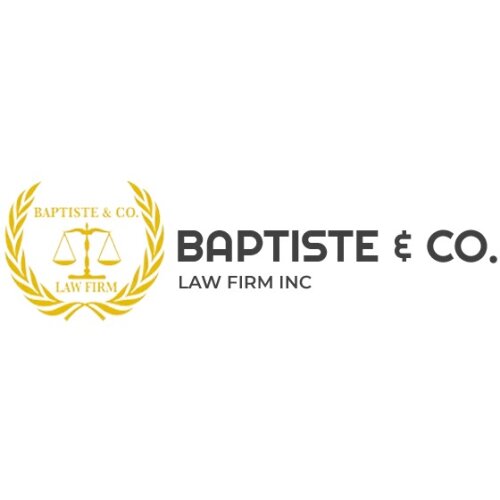Best Renewable & Alternative Energy Lawyers in Kingstown
Share your needs with us, get contacted by law firms.
Free. Takes 2 min.
List of the best lawyers in Kingstown, Saint Vincent and the Grenadines
About Renewable & Alternative Energy Law in Kingstown, Saint Vincent and the Grenadines
Renewable and alternative energy is a rapidly growing sector in Saint Vincent and the Grenadines, particularly in the capital city of Kingstown. The country has made significant commitments to sustainable energy development, harnessing resources such as solar, wind, and geothermal energy to reduce dependence on imported fossil fuels. Renewable and alternative energy law is a specialized area of legal practice that addresses the development, regulation, investment, and operation of renewable energy projects. This includes compliance with governmental policies, environmental standards, licensing procedures, and international agreements aimed at promoting cleaner and more sustainable energy sources.
Why You May Need a Lawyer
Engaging with renewable and alternative energy projects can present several complex legal challenges. You may require the assistance of a lawyer if you are:
- Planning to develop or invest in a solar, wind, or geothermal project in Kingstown
- Seeking permits or licenses required for renewable energy installations
- Negotiating land use or property rights for energy infrastructure
- Entering into power purchase agreements (PPAs) with local utilities
- Ensuring compliance with local and international environmental regulations
- Addressing disputes regarding project financing or contractual obligations
- Understanding incentives, subsidies, or duty exemptions for renewable energy investments
- Dealing with intellectual property related to innovative energy technologies
- Navigating community consultations and social impact assessments
- Responding to policy changes that could impact ongoing or proposed projects
A specialized legal advisor can help protect your interests and ensure that your renewable energy venture adheres to all applicable laws and regulations in Kingstown and beyond.
Local Laws Overview
The legal framework for renewable and alternative energy in Saint Vincent and the Grenadines is primarily governed by national legislation, ministerial regulations, and international commitments related to climate change and sustainable development. Key aspects of the local legal landscape include:
- National Energy Policy: The government has adopted policies to promote the use of renewable energy with the aim of reducing importation of fossil fuels and diversifying the energy mix.
- Licensing and Regulation: The Energy Unit, under the Ministry of Energy, oversees the approval of energy projects and ensures compliance with licensing requirements. Specific permits are required for generation, distribution, and sale of electricity from renewable sources.
- Environmental Protection: All major energy projects must comply with environmental impact assessments and other guidelines set out by the Environmental Management Department to ensure minimal ecological disruption.
- Investment Incentives: The country offers a range of incentives for renewable energy investors, including duty-free concessions on equipment, tax holidays in some cases, and technical support from relevant authorities.
- Land Use and Community Consent: Obtaining proper permissions for land development and community consultation is essential, especially for projects that affect local resources or populations.
- International Agreements: Saint Vincent and the Grenadines is party to various international agreements, such as the Paris Agreement, influencing its domestic energy and environmental laws.
Understanding and complying with these legal obligations is crucial for the long-term success of any renewable or alternative energy project in Kingstown.
Frequently Asked Questions
What is the current policy on renewable energy development in Kingstown?
The government actively promotes renewable energy by encouraging investment, providing incentives, and streamlining procedures for project approval in efforts to increase the share of clean energy.
Do I need a permit to install solar panels for my home or business?
Yes, you will likely need to obtain approval from the Energy Unit and ensure compliance with local building codes and grid-connection standards.
Are there tax or duty exemptions for renewable energy equipment?
Yes, certain renewable energy equipment such as solar panels and wind turbines are exempt from import duties, subject to approval by relevant authorities.
How do I start a renewable energy project in Kingstown?
You should begin by consulting with the Energy Unit to understand the regulatory requirements, secure necessary permits, and assess the feasibility of your proposed project.
What environmental regulations apply to energy projects?
Projects must comply with national environmental guidelines, including conducting environmental impact assessments for larger projects.
Can renewable energy projects be connected to the national grid?
Yes, with the proper licensing and technical standards, renewable energy producers can sell electricity to the national grid, often requiring a power purchase agreement with the local utility.
How are land rights handled for energy projects?
Land used for renewable projects must be acquired or leased legally, and may require consultation with the community, especially for larger undertakings.
What role does the Environmental Management Department play?
This department assesses the environmental implications of proposed projects and grants environmental clearance where appropriate, ensuring compliance with national standards.
Are there incentives for foreign investors in renewable energy?
Yes, the Investment Promotion Agency and Energy Unit offer support and incentives for both local and foreign entities seeking to invest in renewable energy infrastructure.
Where can I get help resolving a dispute related to renewable energy?
You might consider mediation or legal action through local courts, or seek support from a specialist lawyer familiar with energy law in Saint Vincent and the Grenadines.
Additional Resources
For further information and guidance on renewable and alternative energy law in Kingstown, consider contacting the following organizations:
- Energy Unit, Ministry of Energy: Responsible for policy development, project approvals, and regulatory compliance.
- Environmental Management Department: Handles environmental assessments and compliance monitoring.
- Investment Promotion Agency: Provides guidance for investors, including incentives and legal requirements.
- Saint Vincent Electricity Services (VINLEC): The main utility company, involved in PPAs and grid connection for renewable projects.
- Eastern Caribbean Supreme Court: Jurisdiction for resolving legal disputes, including those related to renewable energy.
You may also find community-based organizations, international agencies, and legal professionals with expertise in energy law to be helpful resources.
Next Steps
If you require legal advice or wish to proceed with a renewable or alternative energy project in Kingstown:
- Identify your specific legal needs, such as regulatory compliance, permits, or contract negotiation.
- Consult with a lawyer who has experience in energy law and is familiar with local regulations and procedures.
- Gather all relevant documentation, such as project plans, environmental assessments, and correspondence with authorities.
- Contact the relevant governmental departments, such as the Energy Unit or Environmental Management Department, for official guidelines.
- Engage in community consultation as required, especially for projects that may impact local populations.
- Follow up regularly with your legal advisor and stakeholders to address any developments or issues as they arise.
Early and informed legal guidance can help ensure a smooth process, reduce risks, and facilitate the successful realization of your renewable or alternative energy goals in Kingstown, Saint Vincent and the Grenadines.
Lawzana helps you find the best lawyers and law firms in Kingstown through a curated and pre-screened list of qualified legal professionals. Our platform offers rankings and detailed profiles of attorneys and law firms, allowing you to compare based on practice areas, including Renewable & Alternative Energy, experience, and client feedback.
Each profile includes a description of the firm's areas of practice, client reviews, team members and partners, year of establishment, spoken languages, office locations, contact information, social media presence, and any published articles or resources. Most firms on our platform speak English and are experienced in both local and international legal matters.
Get a quote from top-rated law firms in Kingstown, Saint Vincent and the Grenadines — quickly, securely, and without unnecessary hassle.
Disclaimer:
The information provided on this page is for general informational purposes only and does not constitute legal advice. While we strive to ensure the accuracy and relevance of the content, legal information may change over time, and interpretations of the law can vary. You should always consult with a qualified legal professional for advice specific to your situation.
We disclaim all liability for actions taken or not taken based on the content of this page. If you believe any information is incorrect or outdated, please contact us, and we will review and update it where appropriate.











